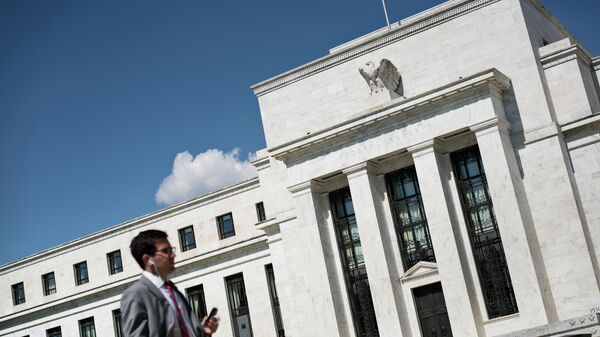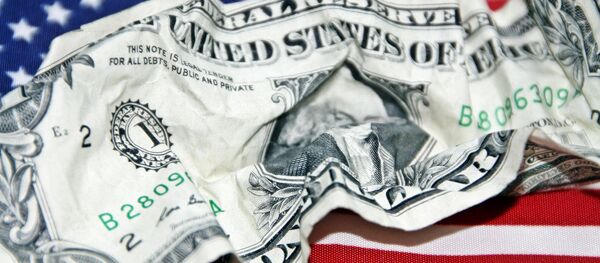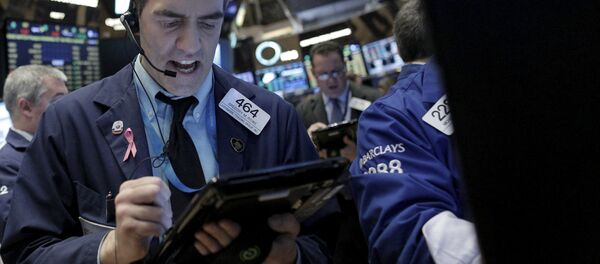Kristian Rouz — The US dollar is set for its best week since the latest plunge in energy prices in November, even though this time around oil holds steady. After the Federal Reserve held rates steady in mid-March amidst an unfavorable macroeconomic outlook, the American currency dipped, yet, the renewed dollar rally might erase those losses as the Fed reconfirmed their plans to raise borrowing costs at least twice this year. Last week, the dollar traded at its nine-month lowest, meaning investors, encouraged by the Fed rhetoric, did not hesitate to capitalize to the opened buying opportunity. As June's hike speculation intensifies, the demand for greenback is poised to grow, meaning the dollar rally might last several months, unless energy prices rebound significantly during the time being.
The renewed dollar rally was triggered by the recent commentary from James Bullard, President of St. Louis Fed, saying the regulator is closer to taking further monetary tightening measures should US economic growth proceed in line with current projections.
"The relatively minor downgrades contained in the March SEP suggest that the next rate increase may not be far off provided that the economy evolves as expected," Bullard said discussing the Fed's policy outlook in New York on Thursday.
This week's macro data has been upbeat so far, with a report on Q4 GDP expansion yet to arrive early on Friday, likely confirming the mild slowdown scenario for the broader economy to an annualized 1% for the period. The day before, the Labor Department said unemployment claims in the week ending on 19 March added only 6,000 to 265,000, whilst previous forecasts suggested the amount of jobless to have increased to 269,000
"There's a cautious optimism", David Sloan of New York-based 4Cast Inc. said. "Things may slow a little as the year goes, but we've got a pretty healthy picture in the labor market."
Meanwhile, currency market dynamics also pushed the dollar higher, regardless of the US domestic economic situation. The yen has been sliding against the greenback for roughly a week straight as Japanese investors were buying into bonds and, to a lesser extent, stocks, as the Bank of Japan (BOJ) might be planning a withdrawal in negative rates regime, which is tightening of monetary conditions of sorts.
"The dollar, from a broad perspective, I think there's probably still some more room to strengthen, if the U.S. data's good," Eric Stein of Eaton Vance Corp. in Boston said.
Next week, another bunch of US macro data is expected, including labour market dynamics (non-farm payroll report on Friday), prices index estimate (consumer prices inflation on Monday), and the measure of confidence in US manufacturing (Purchasing Managers' Index on Thursday). Should this data support current expectations, the dollar is poised to climb higher as investors would be more certain of the Fed's intent to hike rates in June.
"The 114 yen handle will come in view for the dollar if next week's U.S. data show a good pace of job growth, stronger inflation and a bottoming out of manufacturing sector sentiment," Masafumi Yamamoto of Tokyo-based Mizuho Securities said.
The euro, meanwhile, was severely battered by terror attacks in Belgium, sliding 0.9% during the week, from $1.1342 to $1.1162. The sterling, pressured by the Brexit debate, also suffered a terror-fueled selloff, dropping below its past year's trading gauge of $1.42-$1.60 to $1.4113, a 2.5% decline for the week.
The dollar rally might eventually grind to a halt should oil prices rise further. The US oilrig count declined for the week, offsetting the previous reports of higher crude stockpiles in North America.




